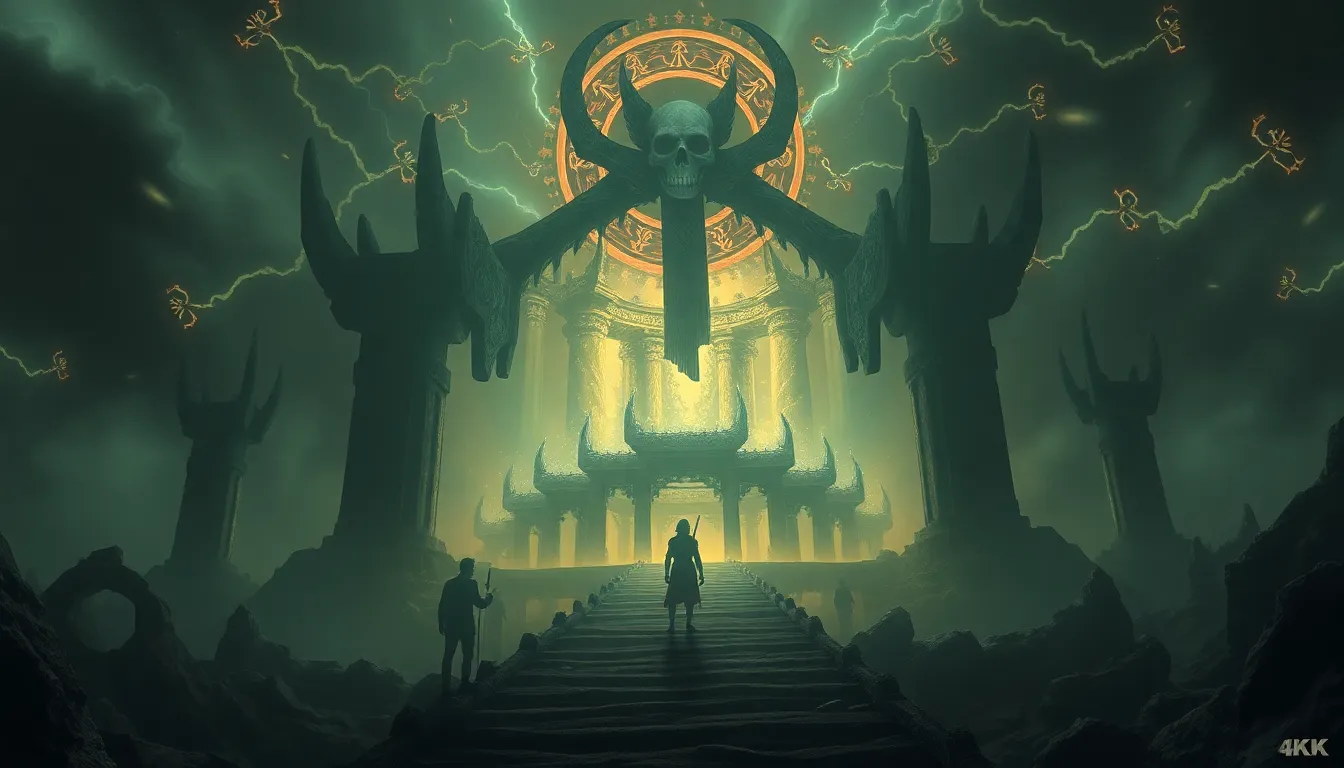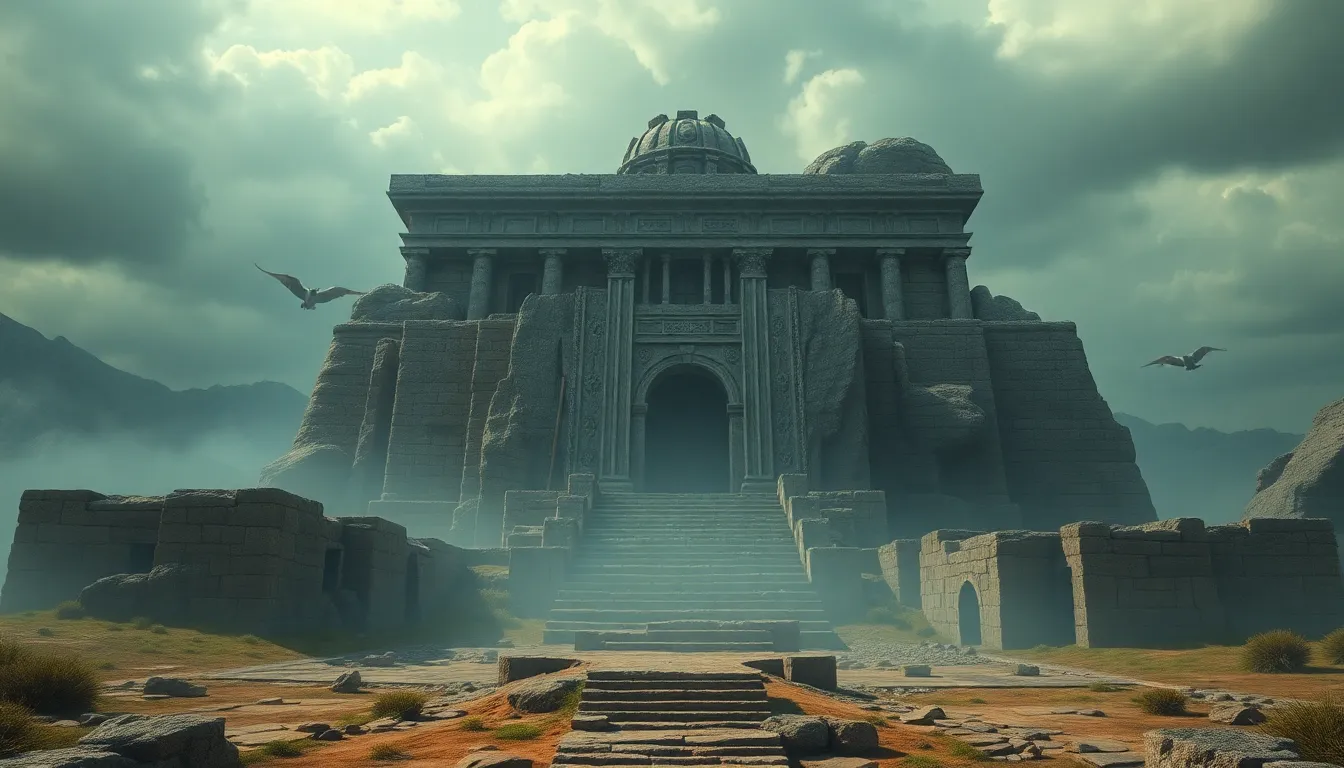The Kingdom of the Timeless Truths: Myths of Wisdom Across Ages
I. Introduction to Timeless Wisdom
Timeless truths are fundamental principles that transcend cultures and epochs, offering insights into the human experience. These truths often emerge from myths, folklore, and ancient narratives that have been passed down through generations. Their significance lies in their ability to provide guidance, moral lessons, and a sense of identity, shaping how societies understand themselves and their place in the universe.
Throughout history, myths have served as a lens through which cultures interpret their realities. They reflect the values, fears, and aspirations of the people who tell them, creating a rich tapestry of human experience that spans across time and geography.
II. The Concept of Myths: More Than Just Stories
Myths are not merely fanciful tales; they are narratives that encapsulate the beliefs and worldviews of a culture. They serve several roles in society, including:
- Explaining natural phenomena
- Providing moral lessons
- Fostering a sense of community and shared values
The psychological and philosophical underpinnings of myths are profound. Psychologist Carl Jung proposed that myths tap into a collective unconscious, revealing archetypes that resonate with individuals regardless of their background. These archetypes provide a framework for understanding personal and societal challenges.
III. Ancient Civilizations and Their Myths of Wisdom
A. Egyptian wisdom: The Book of the Dead and moral teachings
The ancient Egyptians believed in the importance of the afterlife, as encapsulated in the “Book of the Dead.” This text served as a guide for the deceased, outlining moral principles and the journey of the soul. Key themes include the concept of Ma’at, representing truth, balance, and order. The moral teachings emphasized justice and the consequences of one’s actions.
B. Greek mythology: Philosophical insights from Homer to Plato
Greek mythology is rich with stories that convey wisdom and ethical dilemmas. From Homer’s “Iliad” and “Odyssey” to Plato’s philosophical dialogues, these myths explore themes of heroism, fate, and the nature of the divine. The Greeks used myths to engage with philosophical questions about existence and morality, demonstrating how stories can provoke deep thought and reflection.
C. Eastern philosophies: The wisdom of Confucianism and Buddhism
In Eastern cultures, wisdom is often conveyed through philosophical teachings. Confucianism emphasizes the importance of relationships, respect, and moral integrity. On the other hand, Buddhism presents a path towards enlightenment, focusing on the alleviation of suffering through understanding the nature of reality. Both traditions offer timeless insights into the human condition, advocating for compassion and mindfulness.
IV. The Archetypal Hero: A Recurring Theme in Wisdom Myths
A. The hero’s journey as a metaphor for personal growth
The archetypal hero’s journey, as described by Joseph Campbell, illustrates a universal pattern of personal growth and transformation. It includes stages such as the call to adventure, facing trials, achieving a goal, and returning home. This narrative structure resonates across cultures, highlighting the shared human experience of overcoming challenges.
B. Comparative analysis of hero myths from different cultures
Across various cultures, hero myths often share common elements, such as:
- A call to adventure that disrupts the hero’s ordinary life
- Mentorship from wise figures
- Confrontation with adversaries and inner demons
- Return with newfound wisdom to benefit society
Examples include the epic tales of Gilgamesh from Mesopotamia, the adventures of Odysseus in Greek mythology, and the journeys of heroes like Rama in Hindu epics. These stories not only entertain but also impart essential life lessons.
V. Nature and the Cosmos: Myths that Connect Us to the Universe
A. Indigenous myths and their reflections on nature
Indigenous cultures often have rich mythologies that reflect their deep connection to nature. Myths serve to explain natural phenomena and reinforce the importance of living in harmony with the environment. For instance, many Native American tribes have creation stories that emphasize the sacredness of the land and the interconnectedness of all living beings.
B. The role of celestial bodies in myths across cultures
Celestial bodies, such as the sun, moon, and stars, often play significant roles in myths. They serve as symbols of guidance, change, and the cyclical nature of life. For example, ancient Egyptians revered the sun god Ra, while many cultures have creation myths that involve the moon as a nurturing figure. These celestial myths connect humanity to the cosmos, fostering a sense of wonder and belonging.
VI. The Role of Folklore in Preserving Timeless Truths
A. How oral traditions carry wisdom through generations
Folklore, often passed down orally, is a vital means of preserving cultural wisdom. Through storytelling, communities share moral lessons and historical narratives that shape their identities. Oral traditions allow for the adaptation of stories, ensuring their relevance across generations.
B. The impact of folklore on modern storytelling and culture
Folklore continues to influence contemporary literature, film, and art. Elements from traditional stories can be seen in modern narratives, where themes of heroism, morality, and human connection remain relevant. This interplay between folklore and modern storytelling ensures that timeless truths are not lost but transformed.
VII. Myths of Wisdom in the Age of Technology
A. Relevance of ancient wisdom in contemporary society
In an age dominated by technology and rapid change, the wisdom contained in ancient myths remains relevant. These stories offer insights into ethical dilemmas, interpersonal relationships, and the search for meaning in a complex world. As individuals face modern challenges, the principles embedded in these myths can provide guidance.
B. Digital storytelling: How technology transforms myth
Technology has transformed the way myths are told and shared. Digital platforms allow for innovative storytelling techniques, making ancient myths accessible to new audiences. Through podcasts, social media, and interactive media, the essence of these stories can be reimagined while maintaining their core messages.
VIII. Critiques and Interpretations of Timeless Myths
A. Analyzing the relevance of myths in modern ethics
While myths are rich in wisdom, their interpretations can vary significantly based on cultural and historical contexts. Analyzing the relevance of myths in modern ethics can reveal both their strengths and limitations. It is essential to engage critically with these narratives to understand their application in contemporary moral discussions.
B. The danger of oversimplification: Misinterpretations of wisdom
Misinterpretations of myths can lead to oversimplified views of complex issues. It is crucial to recognize the nuances within these stories and the diverse perspectives they represent. Engaging with myths requires a thoughtful approach that honors their depth and significance.
IX. The Future of Myths: Evolving Wisdom for New Generations
A. How myths can guide future societal changes
As society evolves, myths can serve as a guide for addressing contemporary challenges. The values and lessons embedded in these narratives can inform discussions about justice, equity, and sustainability, inspiring future generations to create positive change.
B. Creating new myths: The role of modern storytellers
Modern storytellers have the power to create new myths that reflect current realities and aspirations. By weaving contemporary issues into narratives, they can forge connections between the past and present, ensuring that the wisdom of the ages continues to resonate.
X. Conclusion: Embracing the Kingdom of Timeless Truths
Preserving and understanding myths is vital for maintaining a connection to our shared human experience. These narratives provide insights into moral dilemmas, cultural identities, and the complexities of existence. As we explore our personal connections to ancient wisdom, we embrace the kingdom of timeless truths, ensuring that these stories continue to inspire and guide us in the future.



